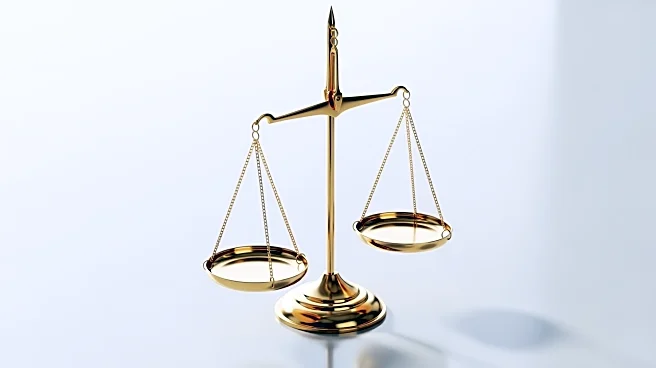What's Happening?
President Trump has defended his tariff policies, labeling opponents as 'fools' and promising to use the revenue generated from these tariffs to fund $2,000 dividends for Americans. Since the introduction of the 'Liberation Day' tariffs in April, tariff revenues
have increased significantly, reaching $215.2 billion in fiscal year 2025. The Supreme Court is currently reviewing the legality of these tariffs, which were imposed under the International Emergency Economic Powers Act. A federal appeals court previously ruled that Trump overstepped his authority by using emergency powers to impose new tariffs, stating that such powers lie with Congress or within existing trade policy frameworks. The Supreme Court's decision will determine the future of Trump's trade agenda.
Why It's Important?
The outcome of the Supreme Court review on President Trump's tariffs could have significant implications for U.S. trade policy and economic strategy. If the court upholds the tariffs, it could reinforce presidential powers in trade matters, potentially leading to more unilateral trade actions. Conversely, a ruling against the tariffs could shift power back to Congress, affecting future trade negotiations and policies. The promise of $2,000 dividends funded by tariff revenues could impact consumer spending and economic growth, but it also raises questions about the sustainability of such payments and their effect on the national debt, which is currently over $38 trillion.
What's Next?
The Supreme Court's decision on the legality of President Trump's tariffs is awaited, with potential consequences for U.S. trade policy. If the court rules in favor of Trump, it could embolden further use of emergency powers in trade matters. However, a ruling against the tariffs could lead to legislative changes and adjustments in trade policy frameworks. Stakeholders, including businesses and trade partners, are closely monitoring the situation, as the decision could affect international trade relations and economic strategies.
Beyond the Headlines
The legal scrutiny of President Trump's tariffs highlights the ongoing debate over the balance of power between the executive and legislative branches in trade policy. The case could set a precedent for how emergency powers are used in economic matters, influencing future administrations. Additionally, the promise of dividends raises ethical questions about the use of tariff revenues and the potential impact on income inequality and fiscal policy.
















